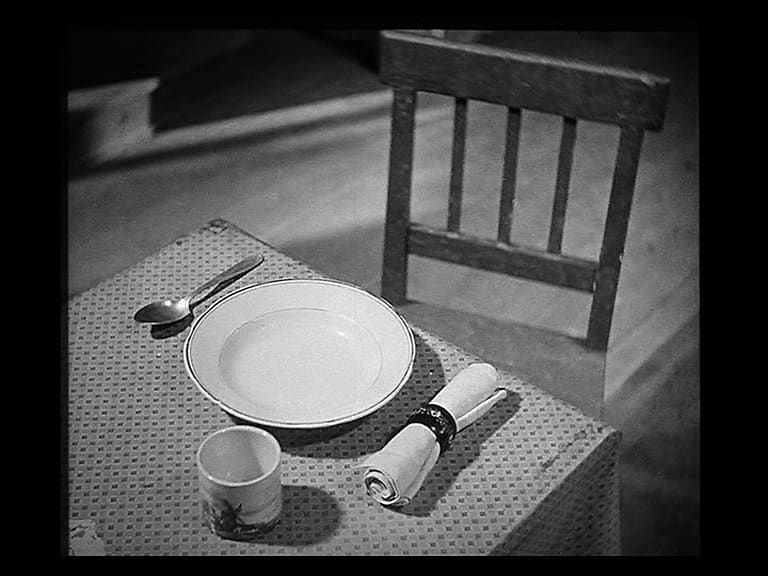
When I was growing up, my father used to walk in the door punctually at six o’clock, and not too long afterward, the whole family would sit down to a more or less civilized supper. My mother planned meals consisting of a protein, a vegetable and a starch; there was tea and dessert afterward. Everyone stayed at the table until supper was over. We had to taste, and preferably finish, everything on our plates (the starving children in Asia)–no whining about the menu, and no abrupt exits.
Nowadays, very few husbands come home early enough to eat supper with the children–those poor beleaguered fellows are either working long hours, working two jobs or out grabbing some time to learn. Nobody is home at lunchtime either, so Shabbat is the only time the family gets to eat together. As the kids get older, meals become even more fragmented. This son has mishmar, this daughter is staying late for play practice, Mommy is leaving early to go to a PTA meeting. We have nice enough houses, but nobody ever seems to be home.
I read once that the genius of Ray Kroc, the founder of McDonald’s, was to recognize that modern-day Americans never dine, they just “grab a meal.” This presents numerous problems. To begin with, there is not much incentive for a mother to lovingly slave over the stove. If she knows the kids will gobble up the food in three separate shifts of five minutes, and her husband might end up eating out anyway, there’s no incentive to cook elaborate suppers.
Those of us who appreciate good homemade cooking mourn the loss of nourishing, chemically unaltered, tasty meals. But the main problem with the disappearance of the family supper is not so much the loss of wholesome home-cooked meals, rather the loss of family time. When dinner becomes a fragmented, rushed affair, eating gets downgraded from a social, family event to a solitary refueling, akin to filling up the gas tank of a car.
Let’s face it, the flavor of those home-cooked meals we all remember fondly didn’t come only from Mom’s expert touch; it came from the fact that those meals were eaten together. When the family makes a point of sitting down together for supper, the meal becomes more than a hasty restocking of the intestines. It becomes an event, the way my husband’s boyhood meals in Morocco were an event: a moment of family time together, with eating as the excuse. A family dinner is an opportunity for the inculcation of proper middot (character traits) and derech eretz (respect) and for an exchange of news and ideas.
We are all so busy these days, each family member in his own orbit; it would be tremendously helpful if we could pull all those satellites in and have them return at least once a day. We worry about alienated children, but some of those unhappy kids are not responsible for their own alien-ation; there is precious little family closeness in the first place. Contrary to popular belief, families do not run on autopilot; like marriages, they need nurturing and time to thrive. It would surely be harder to fall out of touch with our children if we saw them at an official family meal every day. Little problems might not turn into big ones if we saw each other regularly enough to keep abreast of what our family members are up to, air our grievances and give ourselves the chance to unwind at the end of the day with some pleasant family time.
Our meals have the potential to make one feel closer not only to his family members, but to Avinu she-bashamayim (Our Father in Heaven) as well. A table is compared to a mizbayach (altar), and not only on Shabbat. When we eat at ninety miles an hour and bentch twice as fast, we are not investing our mealtimes with spirituality. We may joke about good food being a “religious experience,” but it is important to appreciate food: that we have enough of it, that Hashem made it tasty for us and that we are able to make berachot over it.
There are still many weeks when Shabbat is the only opportunity my family gets to eat together. But I intend to persist in trying to keep us together for weeknight meals as well. In an age when it’s increasingly hard for families to stay together, we could start by staying together for supper.
Barbara Bensoussan is a freelance writer and a former psychology and English instructor at the University of Michigan. She lives in Brooklyn with her husband and six children.
This article is reprinted with permission from the Spring 2004 issue of Jewish Action.
The words of this author reflect his/her own opinions and do not necessarily represent the official position of the Orthodox Union.
